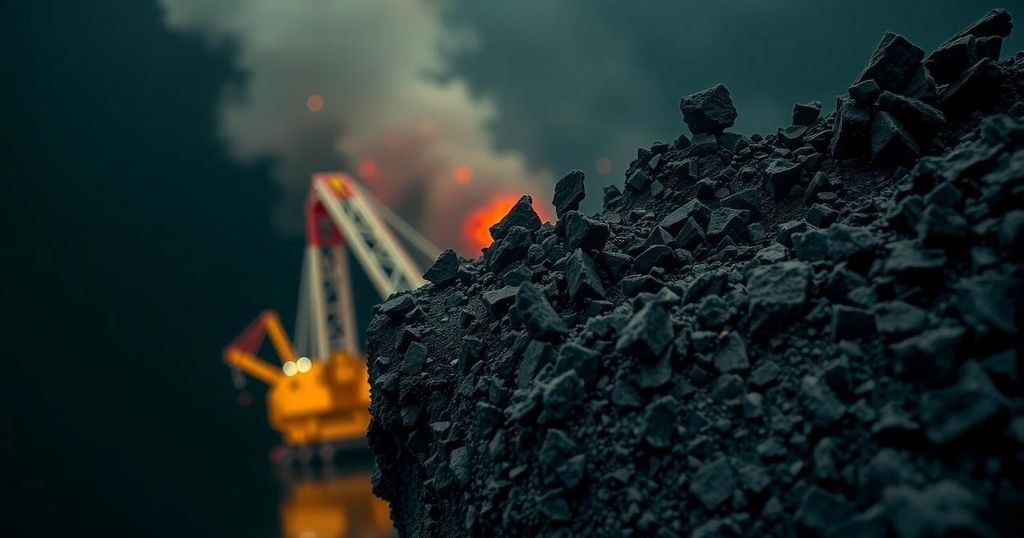The illegal mining boom, locally termed “galamsey,” poses significant ecological and economic challenges in Ghana as the country prepares for a presidential election. Miners, primarily motivated by unemployment, face government crackdowns while expressing the need for job creation. With environmental degradation affecting agricultural lands and water resources, citizens are urging political candidates to propose clear, enforceable strategies to address illegal mining and its impacts.
In Ghana, the illegal mining activity known as “galamsey” is significantly impacting both the environment and the political landscape as the nation approaches its upcoming presidential election. Miners, driven by poverty and unemployment, engage in hazardous work under dire conditions, with many earning incomes that rival those of formal occupations. Despite the dangers and environmental degradation caused by these activities, the miners express their need for job creation rather than government crackdowns on their operations.
The repercussions of galamsey are evident; the practice has led to the loss of extensive agricultural land and compromised water quality across regions like Western and Ashanti. The Ghanaian government, which has previously pledged to eradicate illegal mining, now faces mounting pressure from citizens and environmental advocates to devise actionable strategies. As the elections draw near, the candidates’ stances on illegal mining and environmental preservation will undoubtedly influence voter sentiment and the broader political discourse.
Current mining practices have not only contributed extensively to Ghana’s gold production but have also exposed deep-rooted socio-economic issues that demand attention. Significant areas of farmland have been devastated, with rivers polluted by mining runoff, thereby threatening the livelihoods of local populations. While there have been recent government initiatives aiming to regulate these activities, the mixed effectiveness of enforcement remains a concern among the populace.
Participants in the mining sector like Frank illustrate the broader sentiment that without the inclusion of their voices in the political discourse, the situation will only worsen. For many younger voters, the issue of illegal mining transcends immediate economic concerns and serves as a stark reminder of governmental inadequacies. The impending elections could provide an opportunity for voters to express their grievances and advocate for more sustainable practices and policies.
Illegal mining has surged in Ghana, fueled by economic desperation and a lack of viable employment opportunities. Known locally as “galamsey,” this practice has devastating environmental effects, damaging agricultural lands and polluting water sources critical for local communities. With the nation preparing for elections, the controversy surrounding this issue has emerged as a central theme, prompting discussions on government responsibility and the need for sustainable solutions. As candidates vie for power, their positions on galamsey will undoubtedly influence public opinion and voting behavior, reflecting a collective demand for effective reforms.
The rise of illegal mining in Ghana, characterized by the challenges it presents to both the environment and the socio-economic fabric of the nation, is a pressing issue as the public approaches the presidential election. With the practice negatively impacting key sectors such as agriculture and water quality, voters are seeking actionable solutions from political candidates. The election may serve as a pivotal moment for citizens to demand accountability and sustainable practices, emphasizing the need for cooperative frameworks that consider the voices of those affected by galamsey.
Original Source: www.barrons.com






